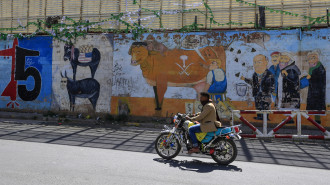This Egyptian preacher endorsed marrying off new-born girls
|
|
A religious cleric, however, took the debate to new paradigms when he said parents should be able to marry girls off as young as one day old.
Cleric Muftah Mohammad Maarouf, also referred to as Abu Yahya said this during a televised debate on whether the marital age for girls should be so low that it should allow new-born babies to be married off.
He urged that as long as “no harm” is done to the child, there should be no issue with “preventing her from getting married”.
Endorsing the lowering of the marital age for girls, he claims that his views stem from Islam. "I am not saying this out of nowhere; in Islamic Sharia there is no set age for marriage when it comes to females," Maarouf claimed.
The TV show's presenter contested this with the point that "if this is the case, then girls of any age can get married Islamically, 2 months, 1 year."
"Even if she's just 1-day-old", Abu Yahya replied.
In Islam, consent is vital when it comes to marriage. Both parties getting married must be fully aware of their marriage, must fully understand their rights and responsibilities and must want the marriage.
The vast majority of Islamic scholars believe that if a woman does not accept the marriage contract, the marriage is rendered invalid under Sharia.
This is not the first time religious clerics have come out with such statements in Egypt.
In April an Egyptian Salafi preacher said a teenager who was mobbed by hundreds of men was to blame for the brutal sexual assault because she was wearing "provocative clothing".
A 19-year-old was sexually assaulted by a mob of men, who reportedly attempted to strip off her dress after she left a friend's wedding. Police had to fire shots in the air to disperse the crowd.
During a TV appearance, Sameh Abdel Hamid claimed that the victim should not have worn a dress in the streets of the northern city of Zagazig.
"Does this girl not deserve some of the blame? She was walking in the street wearing provocative clothing and not wearing a hijab… she was also to blame," Abdel Hamid said.
"She went against the customs of a working-class area such as Zagazig, where women do not walk around like that," he argued.
![Egyptian cleric Muftah Mohammad Maarouf [Youtube] Egyptian cleric Muftah Mohammad Maarouf [Youtube]](/sites/default/files/styles/image_345x195/public/media/images/E297A449-61C1-4B14-A2FD-81950CFF3C21.png?h=d1cb525d&itok=3PoAXBGI)






 Follow the Middle East's top stories in English at The New Arab on Google News
Follow the Middle East's top stories in English at The New Arab on Google News


